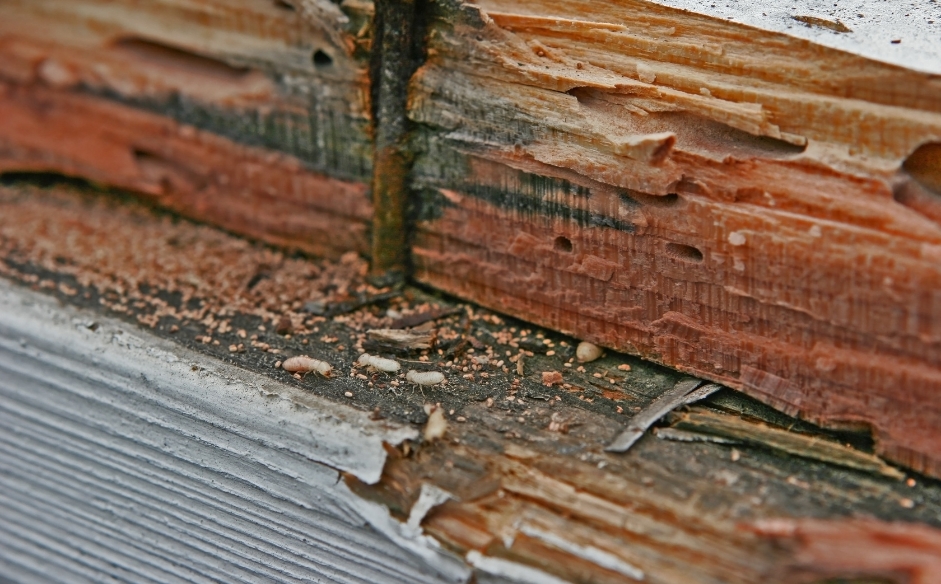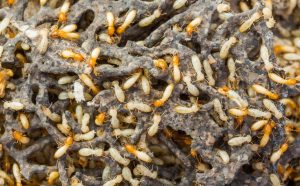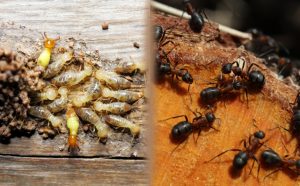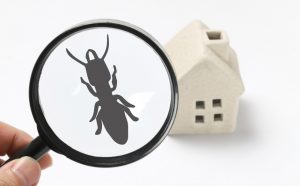Termites, also known as “silent destroyers”, can cause significant damage to our homes and properties. These small insects feed on wood and other cellulose materials, making them a major concern for homeowners. In Singapore, it is reported that around 80% of homes have been affected by termite infestation at some point.
To protect our homes from termite infestations, we often rely on chemical pesticides. However, these chemicals can be harmful to both humans and the environment. Therefore, it’s important to explore natural repellents that can effectively keep termites at bay without causing any harm.
Natural Repellants for Termites
Orange Oil
Derived from orange peels, this oil contains a compound called d-limonene, which is toxic to termites. It works by breaking down their exoskeletons, leading to dehydration and death.
Orange oil is a popular natural termite repellent because it is easy to use and has low toxicity levels for humans and pets. However, it may not be effective against all types of termites and may need to be reapplied regularly.
Neem Oil
Neem oil is another natural alternative for termite control. It is derived from the neem tree and contains a compound called azadirachtin, which disrupts the insect’s hormonal balance, ultimately leading to their death.
Neem oil is considered safe for humans and pets, but it may take longer to show results compared to other chemical options.
Borax
Borax, also known as sodium borate, is a mineral salt commonly used for cleaning and laundry purposes. However, it has also been found to be an effective natural termite repellent.
When termites ingest borax, it affects their digestive system and leads to their death. Borax can be mixed with water and sprayed around the infested areas or applied directly to the wood.
Diatomaceous Earth
Diatomaceous earth is a naturally occurring sedimentary rock made up of fossilised remains of tiny aquatic organisms called diatoms. It acts as a desiccant, absorbs the moisture from termites’ bodies, and causes them to die from dehydration.
Diatomaceous earth can be sprinkled around infested areas or applied directly to the wood.
Essential Oils
Some essential oils, such as clove, cedar wood, and tea tree oil, have repellent properties against termites.
These oils can be mixed with water and sprayed around infested areas, or added to wood treatments for added protection. However, essential oils may need to be reapplied regularly and may not be as effective as other natural options.
Prevention is Key
While these natural repellents may help control termite infestations, the best way to protect your home from termites is by taking preventive measures. These include:
- Regularly inspecting and repairing any moisture or plumbing issues in and around your home.
- Keeping firewood and other wooden materials away from the foundation of your home.
- Removing any termite-attracting plants or debris from around your property.
- Ensuring proper ventilation in attics and crawl spaces to prevent excess moisture buildup.
Call a Professional
If you suspect a termite infestation in your home, it is always best to call a professional pest control company.
They can properly identify and treat the problem using safe and effective methods. In addition, they can also provide valuable advice on how to prevent future termite infestations.
Takeaway
Natural repellents can be a great alternative to termite control, but they may not always be as effective as chemical options.
It is important to regularly monitor your home for any signs of termites and take preventive measures to avoid infestations. If you have a termite problem, seek professional help for the best results.
Don’t let termites destroy your home and property. Always stay vigilant and take action to protect your home from termite infestations.




